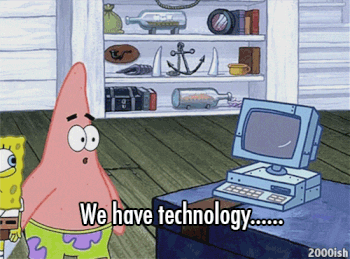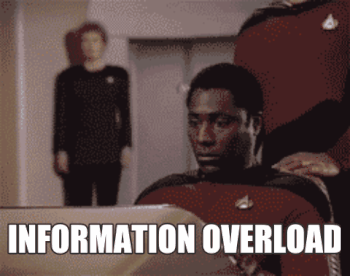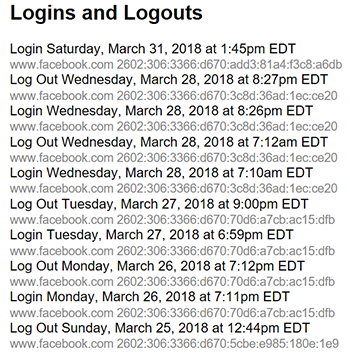After We Die, Our Descendants Will Know Us Better Than We Know Ourselves
What impact will your digital life have on your legacy?
Social media makes it easy for users to post all kinds of information about their lives online. Pleasant interfaces make users willing to reveal personal information, which become a product for social media companies and a small part of a user’s larger digital footprint.
But what does this mean for descendants who become interested in the life you led?
We Have… Technology

Every device and online application that you use retains information about you, whether you give it up knowingly or not. In other words, not only is Facebook publishing your status update and counting how many people “liked” your post, but it’s also tracking how many times you’ve logged in and who you chat with most often. Mobile apps like Uber are keeping track of places you travel back and forth from the most. Online bank accounts track where you’re making your purchases. Email contains a wealth of personal and professional information.
It doesn’t seem so far-fetched that family historians could be digitally “thumbing” through your inbox when Google already lets developers scan the contents of your email.
We should all come to terms with the fact that the information we post online today will be accessed by researchers tomorrow.
There’s already been some discussion about what happens to the social media profiles of the dead (Forbes). Facebook and Google have even started offering the ability to manage your “digital afterlife” and assign a proxy who can maintain your digital assets once you pass on. Still others have acknowledged their digital information and passed it on to their descendants in wills. But how viable is it for individuals to continuously pass their information down to each subsequent descendant?
Think about all of the online accounts that you maintain. It’s likely that your heirs will be unable to decipher all of your digital assets (Unless you provide them with explicit documentation, of course. But who has the time for that?). How would they manage it and pass it down once they die? There is no doubt that pieces of your identity will get lost in the process.
No matter how intimidating the massive pile that is your digital legacy looks, future genealogists and family historians will need to have the patience to dig through it all.

I Predict…
In the near future, genealogists and family historians will be able to access this information for research purposes. Genealogists will further specialize, as is necessitated by the diverse array of digital information that will be available to mine from. Much like today, professionals and family historians alike will need to have an understanding of where specific information is located. But instead of thumbing through family photo albums, they may be looking through your Facebook photos.
The Future of Historical Documents
Future genealogists will be able to dig deeper into family stories than ever before. Census records will still be a necessary research document, but in the future, they won’t be handwritten anymore, which means that your descendant will know exactly how to spell your unique name. Whether or not a question is answered will be completely on the enumerated and never again on the enumerator. There will be a much wider breadth of options to choose from in many categories, including race and ethnicity, and we will have defined them for ourselves, offering our descendants the opportunity to put our responses in a societal context.
The tools we use today will provide an abundance of document types for future researchers to explore!
Facebook profiles will make it easier to verify family and friend relationships. Future family historians will know what schools we attended, what items we were selling, and who wished us a Happy Birthday. On a scarier note, profiles will also make it easier for them to learn who you dated, how long you were in a complicated relationship, or even the cringey poetry that you wrote online as a teenager. NextDoor profiles will detail neighborly squabbles and LinkedIn profiles will list our workplaces, skills, and connections. Google Docs will showcase unfinished projects and school assignments. Usernames to various accounts may provide clues to birth years and maiden names. Just imagine the connections and new research leads that these genealogists will make!
The Life You Sell
There will be plenty of opportunity to trip up your descendants, however. The lives that people lead on social media are often only the idealistic versions of their reality. We could be very well be providing enough false information that no one will trust the content of our posts and tweets. Conflicting information from family members, friends, and social media profiles will certainly make research on your life much harder.
Would Researchers Pay Someone For All That Information?
They could, and they might also not have any other choice. Social media networks have been able to evolve over the past three decades, but who knows what the future holds? With all of the data that they’ve collected, they could easily become the next Ancestry.com for ancestors in the late 20th and early 21st centuries. Some social media companies are already aware of the possibility of retrospective features; consider Facebook’s somewhat controversial “x years ago today” posts. Just don’t be surprised when these social media networks become genealogy companies that sell our information back to our families.
